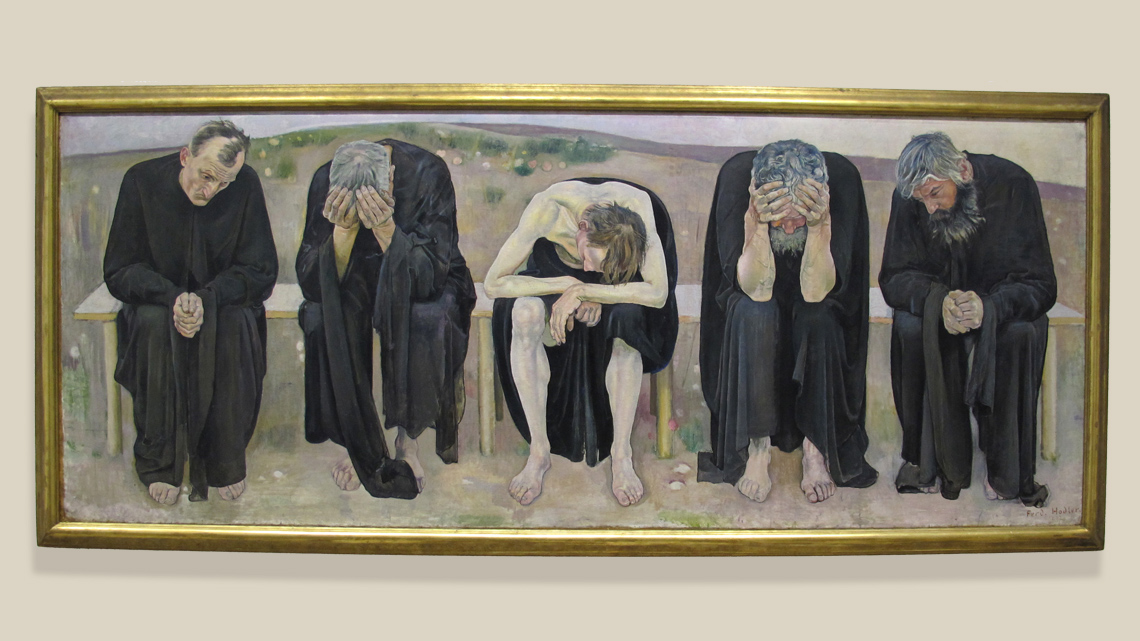The Day for Life 2025 message, shared by the three Bishops' Conferences of England and Wales, Ireland and Scotland offers a reflection on this year's theme.

Day for Life message and reflection on the theme for 2025.
For as long as history has been written, the world has never been without struggle and suffering. Through the lens of television and social media, however, the suffering of the whole world appears on our personal devices. Many of us find it hard to make sense of a world in which suffering seems to press down from every direction: pandemic; war; homelessness; violence in our streets, addiction. Then, often without warning, we find ourselves caught up in the struggle when serious illness comes into our own lives.
Suffering touches every person at some point in their lives. It is often associated with illness, grief, and loss. It is not only caused by physical pain but includes emotional suffering as well as ‘soul pain’, such as depression and despair. Christians are not immune to this mystery and we often struggle to know how best to respond to it, and where we can find hope.
“Hope does not disappoint us, because God’s love has been poured into our hearts through the Holy Spirit that has been given to us” (Rom 5:5-6). St Paul invites us to see that Christian hope is not just naïve optimism but, rather, an unshakeable trust in the power and presence of God who is with us always. This hope can endure the darkness of human suffering and even see beyond it. That is because Christian hope is anchored in God who is Love and whose love reaches out to us and lifts us up day after day.
Care for the sick and suffering was central to the ministry of Jesus. Jesus told the parable of the Good Samaritan as a way of explaining what it means to be a “neighbour” to another person. The Good Samaritan is someone who sees and is moved to compassion (while others turn away), who draws close, who “binds up wounds”, who accompanies the person in need, and who continues to care for as long as it is needed. Often the healing Jesus offered was much more than just a physical cure; it included emotional and spiritual healing as well, because for Jesus, the human person is more than just a body needing to be fixed. Jesus invites us to “Go and do likewise” (Lk. 10:29-37).
The alleviation of suffering is good and must always be part of our focus. But there remains, for many people, a suffering that cannot be taken away and has to be endured. How do we make sense of that? The claim that it is better to die than to suffer leads some people to suggest that euthanasia or assisted suicide might be more compassionate. As Christians, however, we follow Jesus who lived his entire life, including his suffering, in the confident hope that His Father loved him and would raise him up, and He did! The cross, which Jesus did not ask for and did nothing to deserve, has become a sign of hope for countless millions of people in every generation.
The death and resurrection of Jesus leads us to believe that, far from being futile or absurd, a life marked by suffering, when it is lived with generosity and patience, is full of meaning. People like Simon of Cyrene (who helped carry the cross), or St. Veronica (who wiped the face of Jesus) literally accompanied Jesus on the Way of the Cross. Modern saints like Therese of Lisieux and the soon-to-be first millennial saint Carlo Acutis understood that when we unite our suffering with the suffering of Christ for the good of the world, it is transformed through his grace. Most of us have known people like them. Far from being the end of hope, their suffering, when accepted and embraced, has shown itself to be a path to growth and ultimately to Resurrection.
This year’s Day for Life is an invitation to pray for those who suffer and to remain with them like the Good Samaritan, bearing witness to their unique and unrepeatable value. We see this closeness in the generous and fruitful service of healthcare professionals, whose mission continues even when there is no longer any prospect of physical healing. We see it in another way in families, carers and chaplains who support their brothers and sisters who are sick or frail or struggling with the many burdens of life. As Christians, we affirm them and hold out to them the hope of Jesus Christ who does not disappoint us.
Archbishop John Sherrington
Archbishop of Liverpool, England and Wales
Bishop Kevin Doran
Bishop of Elphin, Ireland
Bishop John Keenan
Bishop of Paisley, Scotland